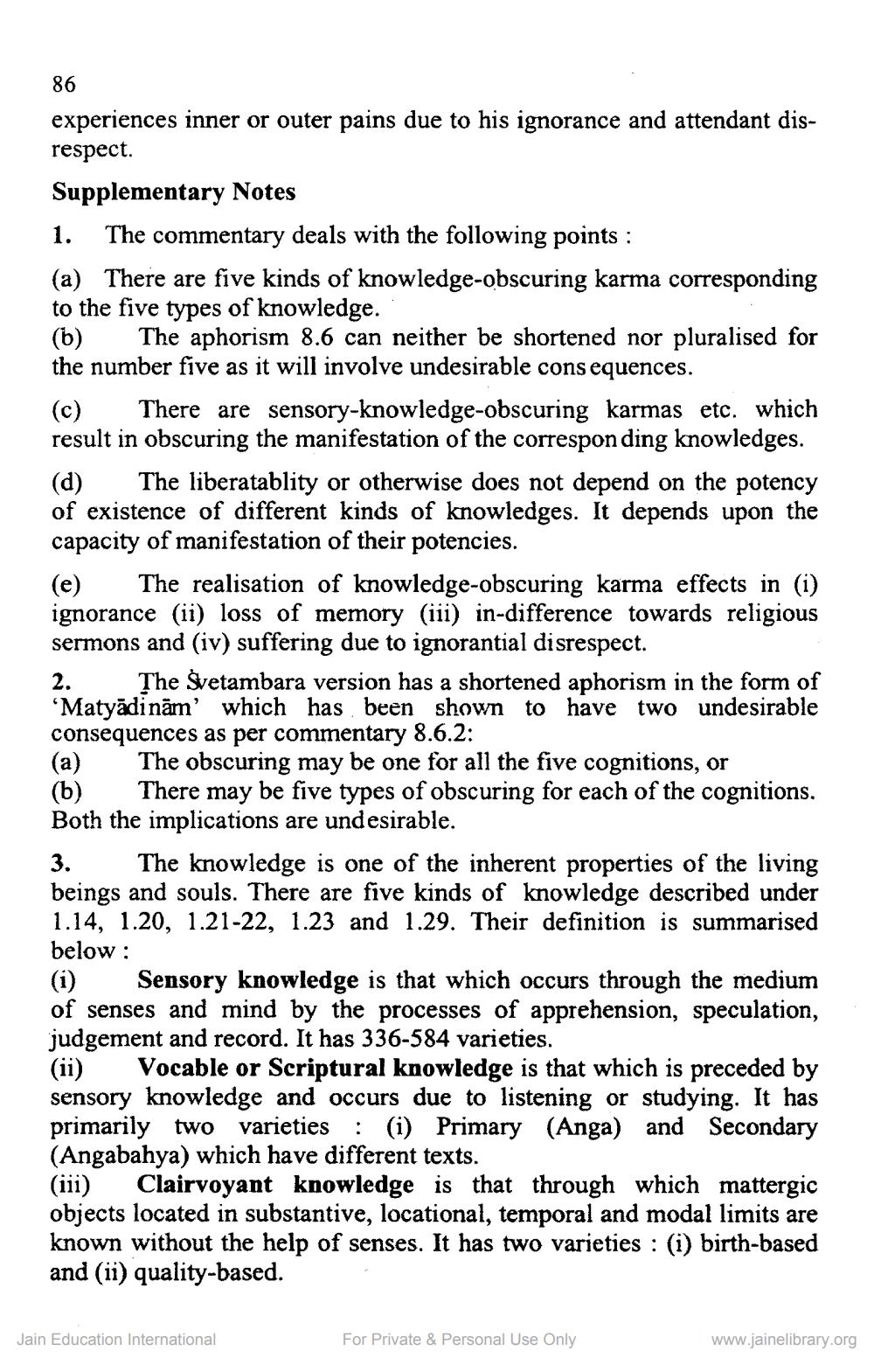________________
86
experiences inner or outer pains due to his ignorance and attendant disrespect. Supplementary Notes 1. The commentary deals with the following points : (a) There are five kinds of knowledge-obscuring karma corresponding to the five types of knowledge." (b) The aphorism 8.6 can neither be shortened nor pluralised for the number five as it will involve undesirable consequences. (c) There are sensory-knowledge-obscuring karmas etc. which result in obscuring the manifestation of the corresponding knowledges. (d) The liberatablity or otherwise does not depend on the potency of existence of different kinds of knowledges. It depends upon the capacity of manifestation of their potencies. (e) The realisation of knowledge-obscuring karma effects in (i) ignorance (ii) loss of memory (iii) in-difference towards religious sermons and (iv) suffering due to ignorantial disrespect. 2. The Svetambara version has a shortened aphorism in the form of 'Matyādinām' which has been shown to have two undesirable consequences as per commentary 8.6.2: (a) The obscuring may be one for all the five cognitions, or (b) There may be five types of obscuring for each of the cognitions. Both the implications are undesirable. 3. The knowledge is one of the inherent properties of the living beings and souls. There are five kinds of knowledge described under 1.14, 1.20, 1.21-22, 1.23 and 1.29. Their definition is summarised below: (1) Sensory knowledge is that which occurs through the medium of senses and mind by the processes of apprehension, speculation, judgement and record. It has 336-584 varieties. (ii) Vocable or Scriptural knowledge is that which is preceded by sensory knowledge and occurs due to listening or studying. It has primarily two varieties : (i) Primary (Anga) and Secondary (Angabahya) which have different texts. (iii) Clairvoyant knowledge is that through which mattergic objects located in substantive, locational, temporal and modal limits are known without the help of senses. It has two varieties : (i) birth-based and (ii) quality-based.
Jain Education International
For Private & Personal Use Only
www.jainelibrary.org




